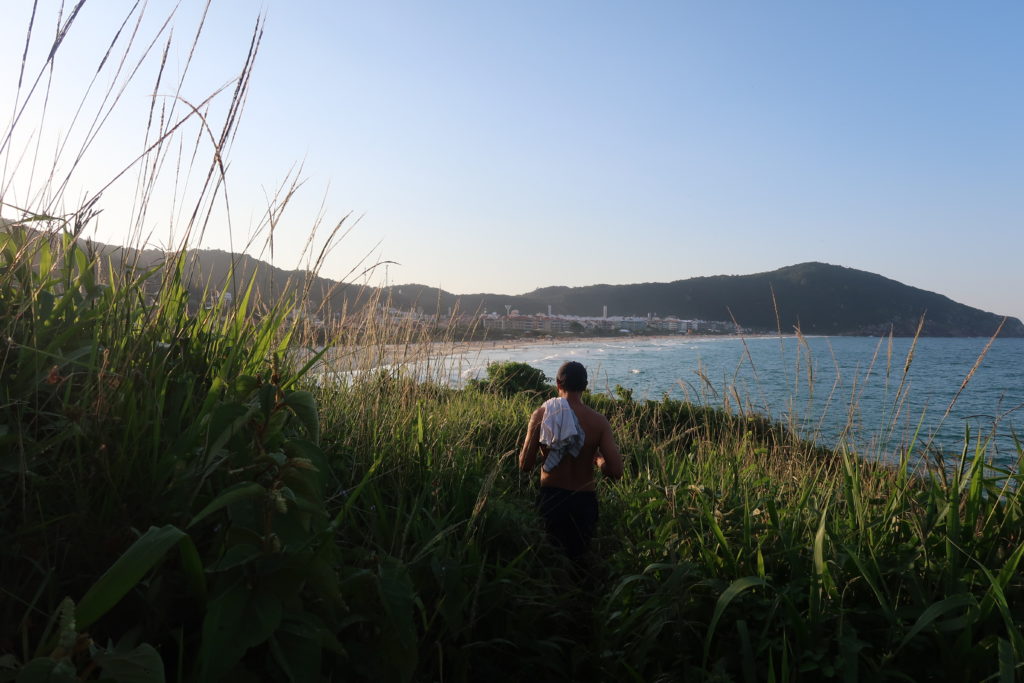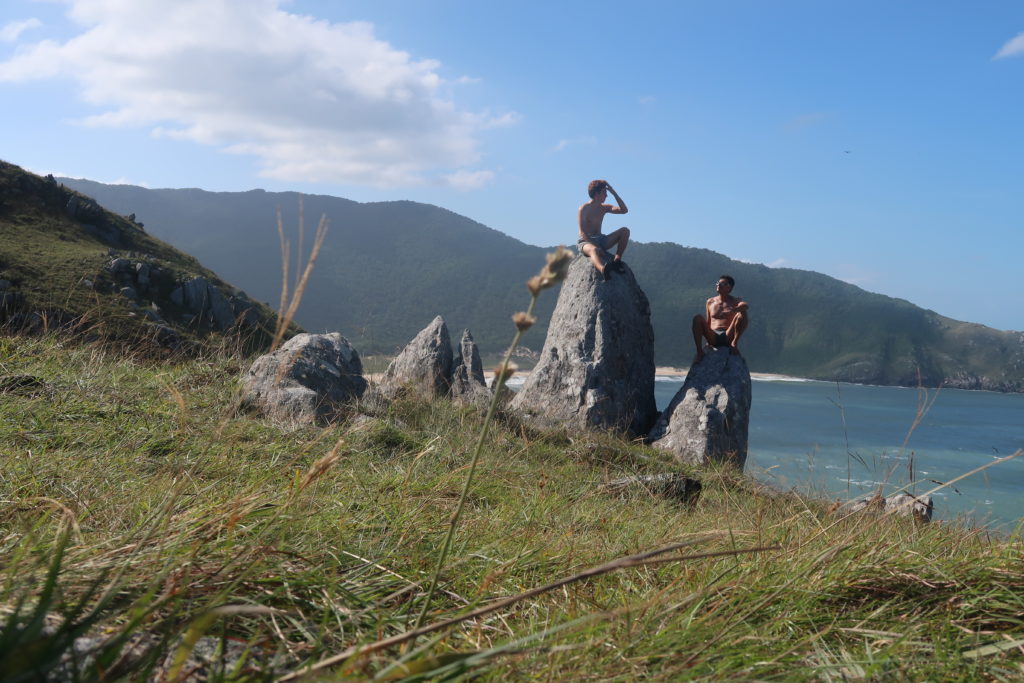
Two years have passed since and I still remember how anxiety took over me before telling my family.
“Practical working experience with a local impact”. Their nodding satisfied me and I briskly jumped to the next item on the pros and cons list.
“Learning a new language”. Passed.
“I will learn how to surf and dance”! I exclaimed with gained confidence.
“Wait, what?!” They erupted into laughter.
The more I thought about my 8-month bridge program in Brazil, the more expectations crawled in. From my “gringo” perspective, I would live in a perfect place. Beach around the corner. A large, loving host-family. And juicy papayas in the garden ready to be picked up at any moment.
However, my appreciation for the place was limited by these expectations which differed widely from reality. Surfing was too expensive; I commuted an hour to work, where I waited another hour for a fruitless task, and three weeks of dancing brought only the basics of ‘forró’ – a cheerful dance that originated in the Brazilian Northeast.

And so, instead of surfing, dancing and impact making, I hiked with my host-father Agenor, listening to his childhood stories; I performed as a bear, in a folkloric theatre with my host family and in the evenings, we all sang, reunited around a table filled with fried fish caught by ‘uncle’ Zé. But my constant urge to fulfill my expectations closed my eyes to these experiences, which were readily available and even more valuable. I questioned my decision to come. I lost my buoyant mood. I closed myself in my little room, where I read Eragon in a slack attempt to learn Portuguese.
Little had changed until the week when we organized a makeshift Olympic Games for suburban children at my work. During one lunch-break, while everyone ate, Fabiano, a little boy, was shooting his ball in the backyard. Upon seeing him, I took my camera wanting to use the subtle cloudy beams to take one more photo for our NGO Facebook page before I go for lunch. Suddenly the ball landed beside me. Noticing that he wasn’t only shirtless but also barefooted, I hesitated temporarily to take up his challenge. The asphalt playground was dry and rocky but it didn’t convince me to play an unfair game; I took off my shoes and kicked the ball into the air to start the game. We laughed, enjoyed ourselves and cheered for each other’s goals – until I slipped and bruised myself. We stopped playing, but I couldn’t stop smiling. I didn’t try to play it cool, I was still overjoyed with the happiness that resonated in the whole complex.
When I talked about my day with my host family at the dinner table, I finally got what I was doing wrong for the whole time. If Fabiano had been only complaining about not having a place to play football and had been waiting idly for soft grass field to be built in his slum, he would have never played and so would have never learned to enjoy the game. Since I, on the other hand, spent days sitting around reading and grumbling about how my Brazilian experience wasn’t according to my ‘gringo’ inflated expectations, of course, I couldn’t enjoy it. Thanks to him, I grasped the formula of “carpe diem”: forget the expectations, adapt to the surroundings – whatever they are – and enjoy them to the fullest

Living up to my newly discovered philosophy, I lived more attentively. I pondered about ideas I never thought of. I scrutinized things I never noticed before.
The class division in Brazil suddenly became more apparent. I recognized that my poorly managed tasks weren’t as fruitless as I thought in the beginning. Through my daily contact with the suburban children, I learned how disconnected from the wealthier classes they are. With a close friend from Armenia, we talked about this issue and decided to undertake a photography project called “Os Desconhecidos” (Strangers) to do our little share on filling the abyss between different social environments which prevent one from considering the lives of others. Had I still been locked up by my imaginary expectations, I would have hardly seen the need to take action.
Every week we went into the streets of Florianópolis asking passersby – ranging from street artists, homeless people, to bakers and policemen – to share their stories. We photographed them, translated their answers and made an exhibition to which they were invited. The most memorable was the story of Adriana who preferred to be called “Preta” (Black). She was from Marranhão, the second poorest Brazilian state. She felt like an outcast although 98% of her state population was Afro-Brazilian. Her 14-page story brought visitors to tears. She taught me that being able to adapt is not only a mindset but also a privilege.
The visitors laughed at one story and cried at the other, and the spirited Preta with them. I was smiling proudly, appreciating the newly acquired knowledge of truly living in the moment – because when we enjoy what is around us, our surroundings enjoy what we do as well.
